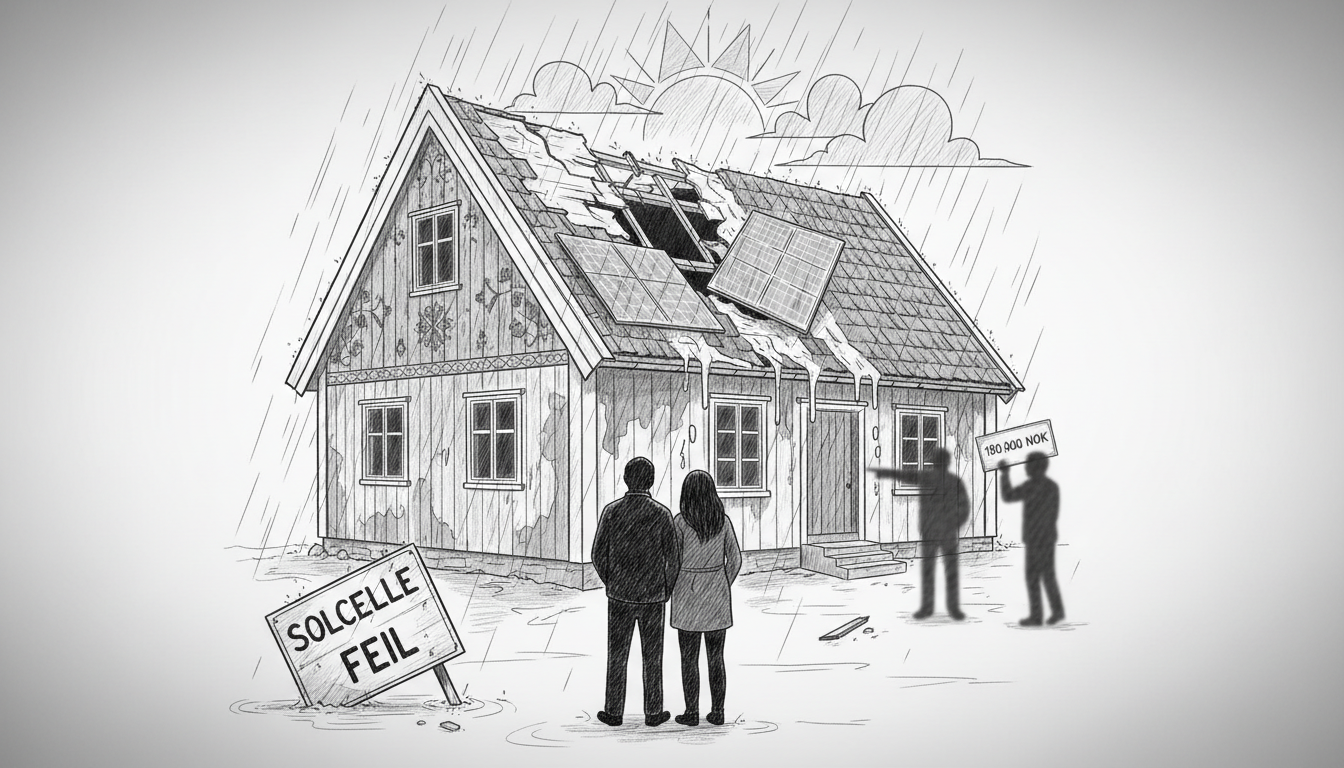A Norwegian couple faces 180,000 kroner in damages after their solar panel installation went wrong, with both the installation company and insurance provider refusing to cover the costs. Katrin Sundal and Oddvin Hansen installed solar panels on their Asker home in 2017 through provider Otovo, expecting an environmentally friendly investment. Instead, they encountered years of water damage and bureaucratic battles.
The problems began when the couple discovered water damage in an interior storage room directly beneath the solar panel installation. Their insurance company Tryg sent an assessor who concluded missing ventilation caused the issues. The couple installed recommended ventilators, but the problems persisted.
Two years later, another leak appeared. This time, Otovo sent their own assessor who revealed the root cause: the solar panels were installed directly on roof tiles rather than proper mounting structures. Sixteen roof tiles had fractured under the weight and weather exposure, causing water to seep into the storage room below.
Otovo admitted the installation error and repaired the roof, but refuses to cover the 180,000 kroner in damaged personal property. The company claims their installer verbally warned the couple about potential moisture issues in that specific storage area. The couple denies receiving any such warning.
Tryg Insurance also denied coverage, citing policy exclusions for mold and rot damage regardless of cause. Communications manager Christer Kjørsvik explained that while water penetration might normally be covered, the resulting mold damage falls under specific exclusions.
Consumer rights lawyer Nora Wennberg Gløersen from the Norwegian Consumer Council reviewed the case. She stated that when professional companies point fingers at each other, consumers should not bear the financial burden. She emphasized that Otovo, as the total supplier, bears responsibility for both installation errors and resulting damages.
This case highlights important consumer protection issues in Norway's growing renewable energy sector. As more homeowners invest in solar installations, proper installation standards and clear responsibility chains become increasingly important. The Norwegian solar market has expanded rapidly in recent years, creating potential gaps in consumer safeguards.
Homeowners considering solar installations should thoroughly research installation companies and understand their insurance coverage limitations. Documenting all communications and seeking multiple professional opinions can help prevent similar situations. The consumer council recommends checking online reviews and company track records before signing installation contracts.
The couple describes extremely difficult communication with Otovo, relying on LinkedIn messaging to reach company leadership. They warn other consumers to be vigilant about installation quality and documentation requirements. As renewable energy adoption increases across Scandinavia, such cases may become more common without stronger industry standards and consumer protections.
Solar energy represents a significant investment for Norwegian households, particularly given the country's high electricity prices. Proper installation and clear responsibility frameworks are essential for consumer confidence in green technology transitions. This case demonstrates how technical failures can create substantial financial burdens when responsibility boundaries remain unclear between service providers.

